Counting calories simply isn’t necessary for most people
Let me tell you why…..
If you’re trying to lose weight, chances are you’re counting calories every day, right? I would also guess you’re probably using one of the many available phone apps to calculate everything for you.
The app works out your daily allowance, based on your current weight, height, age, daily exercise, etc and you simply input your food and exercise each day – seems pretty good, yeah?
So let me ask you this: how’s it working for you?
If you’ve only been doing it for a short time and you’ve managed to consume fewer calories than you were previously, then your answer is probably: great!
If you’ve been at it for longer though, chances are you’ve plateaued. So you’ve either given up because it’s not working, or you’ve decided you need to cut your calories further to see continued progress.
Now I’m going to say something controversial: stop it! Seriously, don’t waste any more of your precious time.
Most people don’t need to count calories to lose weight.
Yep, that’s right! Now let me explain a bit more, and by the time you’ve finished reading this post, you shouldn’t feel the need to count calories ever again.
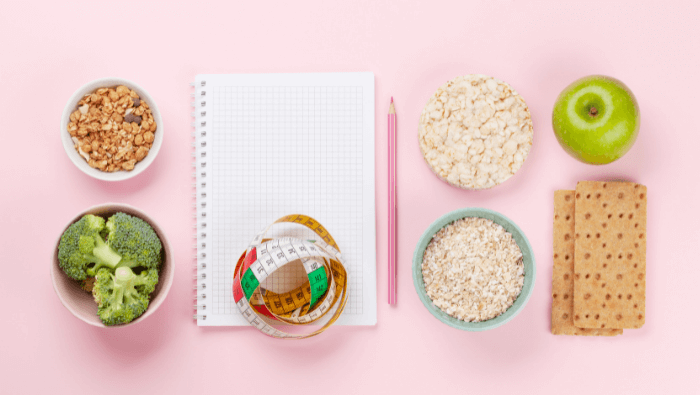
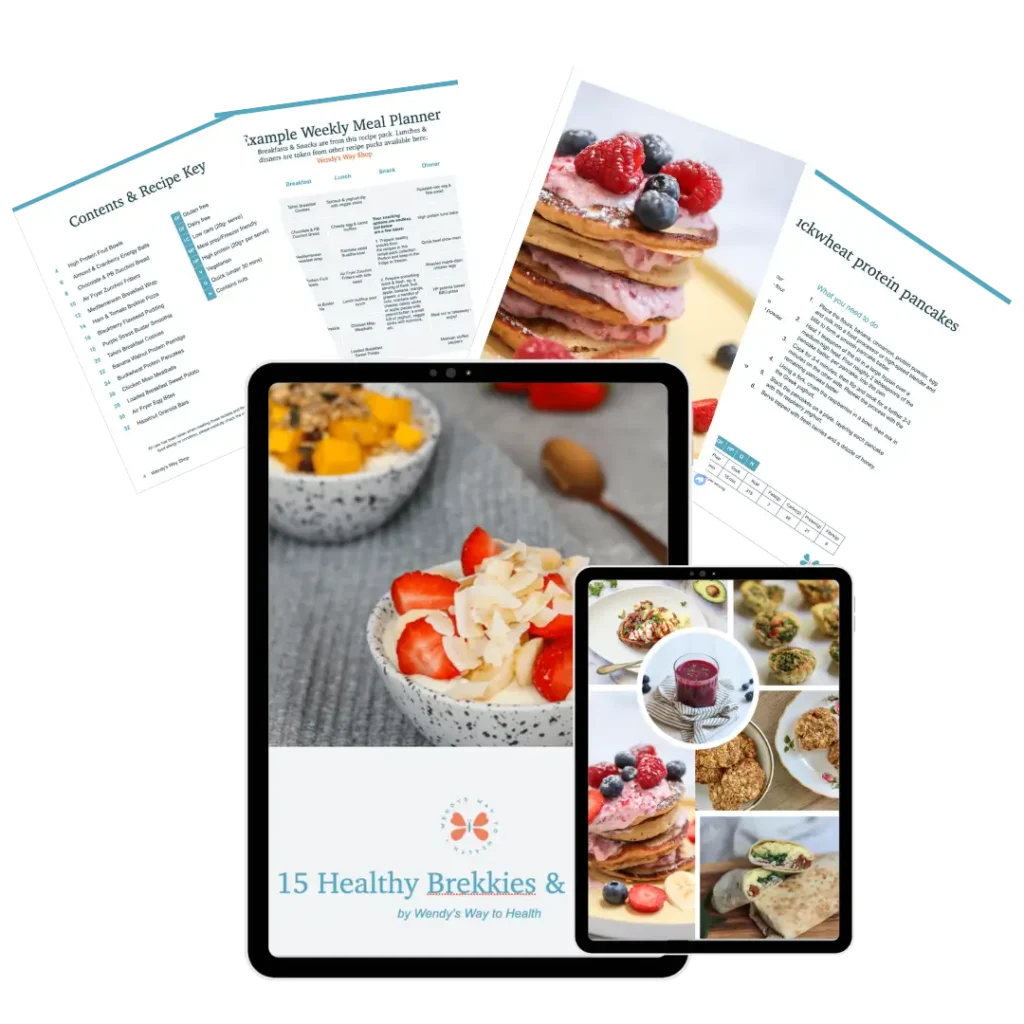
Free Healthy Recipe Pack
Download 15 of my best breakfast and snack recipes
For starters, counting calories simply isn’t very accurate
Calorie counting is very difficult, nigh impossible to get right simply because there are a lot of factors involved.
Let’s start with exercise. You know the cardio machines at the gym that tell you how many calories you’ve burned? They can have an error margin of + or – 25%! It doesn’t matter whether you enter your age and weight information or not.
The machines can only make estimates, so they’re not entirely accurate. They’re great for giving you a ball park idea of what you’ve done. They’re also a great motivational tool, but don’t rely on them for precise information.
Counting food calories
Now let’s look at food. The nutrient and calorie values on food labels are only approximations due to many factors.
Some of those are: outdated/inaccurate data, product variety between batches, soil and growing conditions, ripeness at time of harvest, animals diets, length of storage, preparation methods and cooking times: to name just a few!
Some frozen foods can contain more calories than are listed on the package and some restaurant meals can have a lot more calories than they actually disclose.
Finally, our digestion and excretion rates affect the amount of potential energy available once the food has been eaten.
Are you beginning to see the inaccuracy of it all?
Even if you did know the exact calorie content of the food you’re eating, you can’t know exactly how much of that energy will become usable energy. So your calorie count could be off by around 20%.
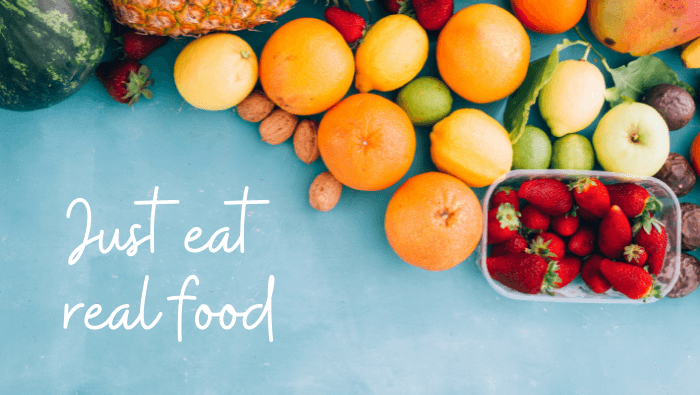
It’s true! You can’t out exercise a bad diet
Now let’s talk about the energy balance equation, or energy in versus energy out. This equation is very important when it comes to weight loss, weight gain and weight maintenance.
You need a negative energy balance in order to lose weight, a positive energy balance to gain weight, and a neutral energy balance to maintain a stable weight.
Exercise makes up anywhere from 15-30% of daily energy demand, so it is a big and controllable factor in the equation.
That’s why adding exercise or increasing your amount of exercise will assist with weight loss.
The most important thing though, is the food you eat. No doubt you’ve heard of the 80/20 equation relating to diet and exercise?
Or you’ve heard the saying “you can’t out-exercise a bad diet.” At the end of the day, it’s the quality & quantity of the food you put into your body that matters most.

Refined & processed foods vs. whole foods
The type of foods you consume will ultimately control the amount of food you consume. Unfortunately, our Western diet, which is high in processed, sugary foods is a huge contributor to disease, health problems and weight gain.
We’re now learning that foods that are highly processed (and high in salt and sugar) don’t properly trigger our appetite hormones to let our brain know when we’re full.
So even though you may have eaten a large meal and you should be full, you remain hungry or you become hungry again very quickly. This means you may consume even more ’empty’ calories in an effort to satisfy that hunger.
To put it simply, these foods are high in calories, but low in nutrients. If you’re eating mostly processed foods, you’re not only starving your cells of proper nutrition, you’re also likely to overeat, leading to weight gain.
As long you continue to eat these kinds of foods, this cycle will continue and you really can’t hope to manage your weight, or feel good, for that matter.
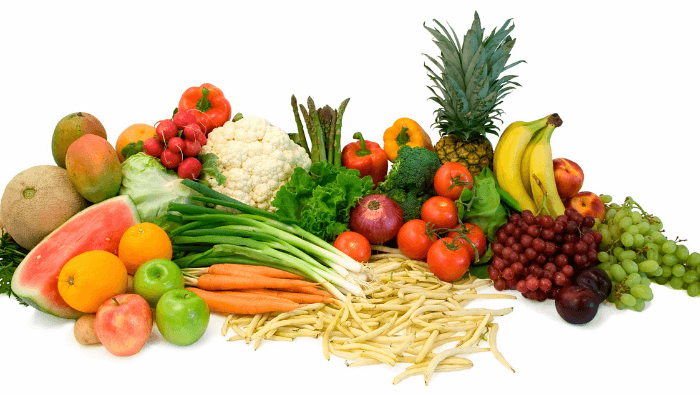
So what’s the answer?
1. Eating mostly whole foods in the right portion sizes, is the simple answer. Fruit & vegetables, lean protein, whole grains and healthy fats.
These foods are nutrient-dense and generally low in calories. They will fill you up and satisfy your hunger because they provide your body with the daily nutrients it needs.
2. Eating slowly and mindfully, without distractions, is the key to feeling full and stopping before you overeat.
3. Exercise is also an important factor in managing your overall health, just remember it’s not magic!
Most important of all: keep it simple
Just making one small change can make a big difference. I know very few people who eat enough fruit and veggies every day; why not start there?
Simply adding more vegetables to your plate means less room for other less-desirable ingredients.
Pop on over to this post: CHANGING HABITS. At the end of the page you’ll find a little challenge. It’s a great way to get started making healthier choices.
Make sure you join the Wendy’s Way email community and download this FREE Healthy Eating Starter Kit.
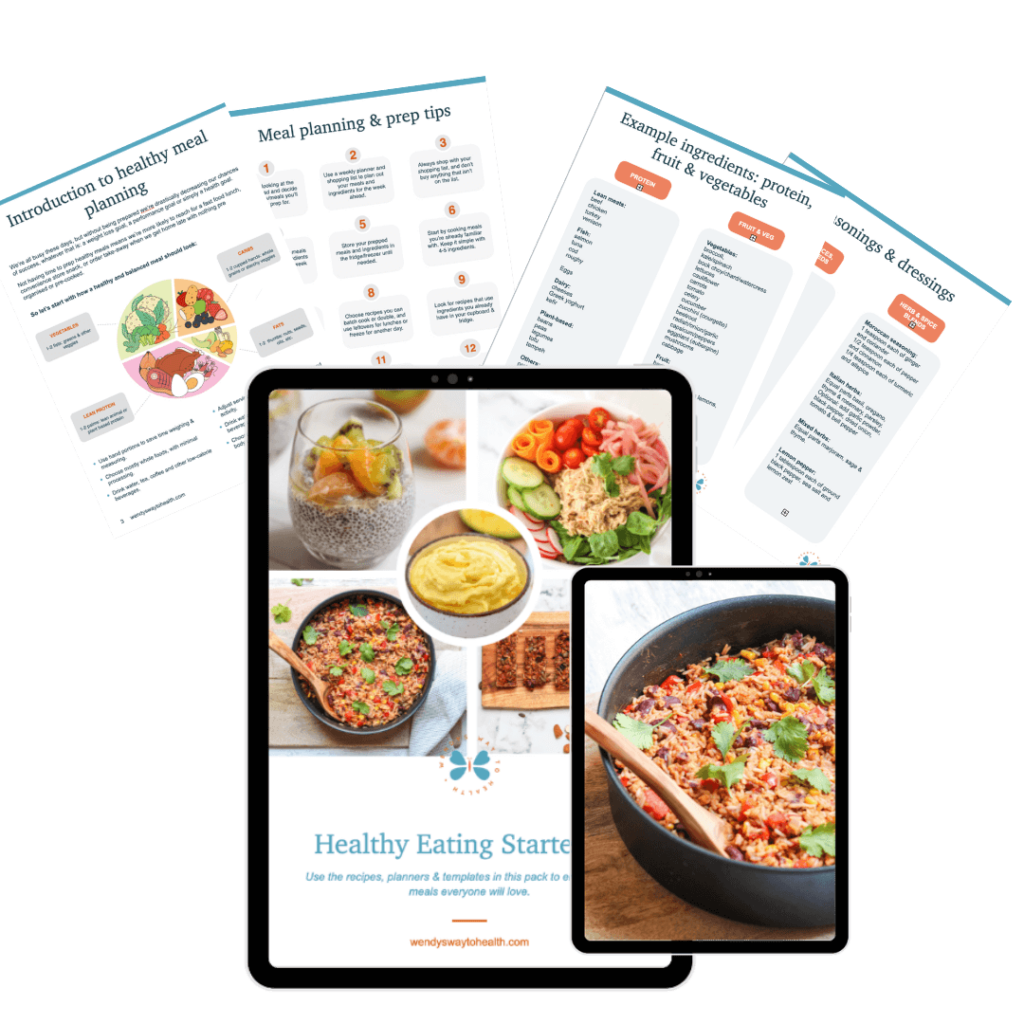
Don’t forget to pin it for later!
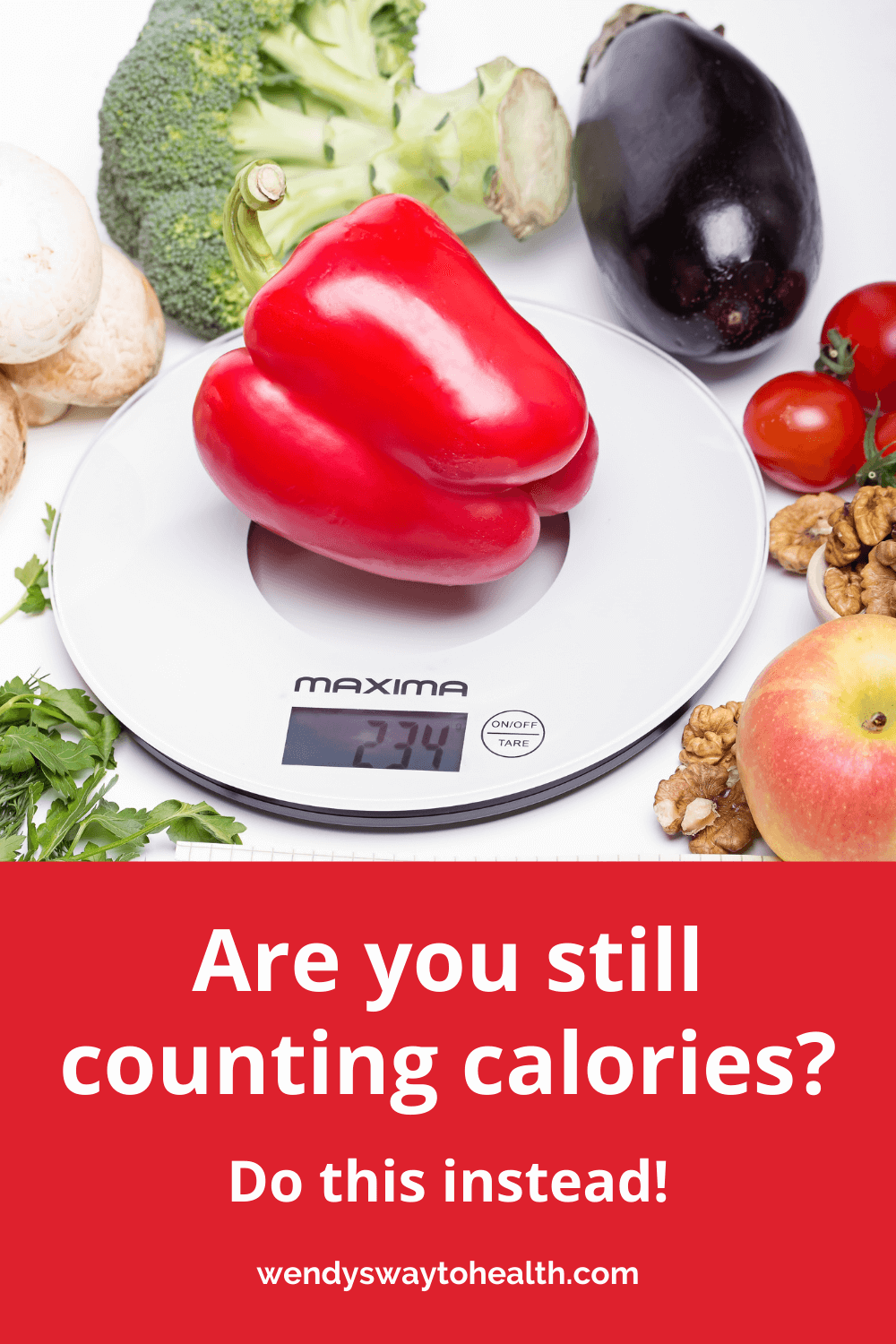
Healthy recipe packs & meal plans
designed to make it easy for you to plan and prepare delicious healthy meals
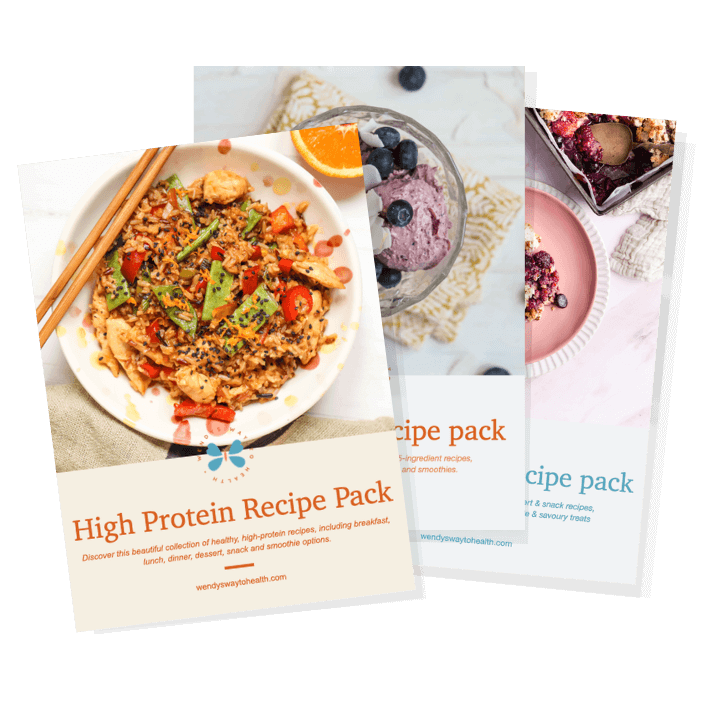
50 recipes in each pack: high protein, 5-ingredient or healthy desserts & snacks
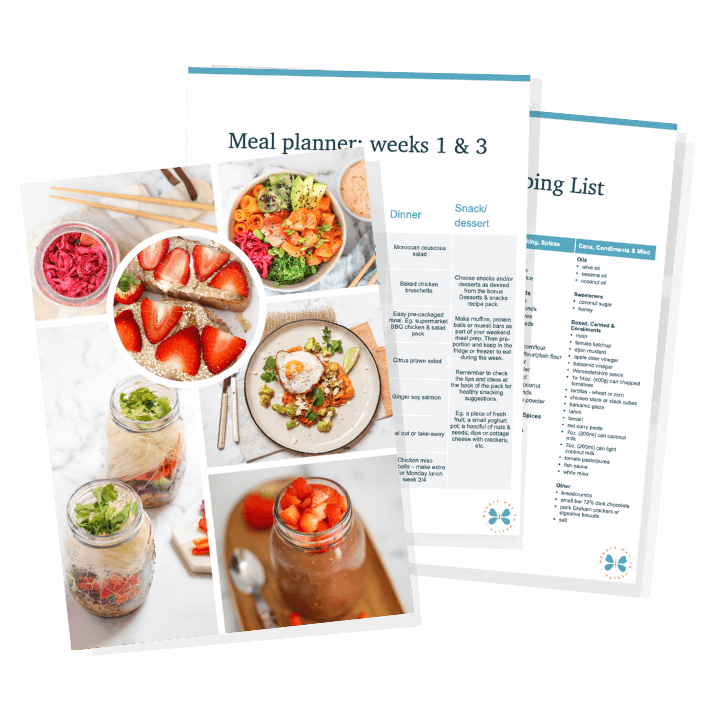
Done for you weekly meal planners, shopping lists and blank templates
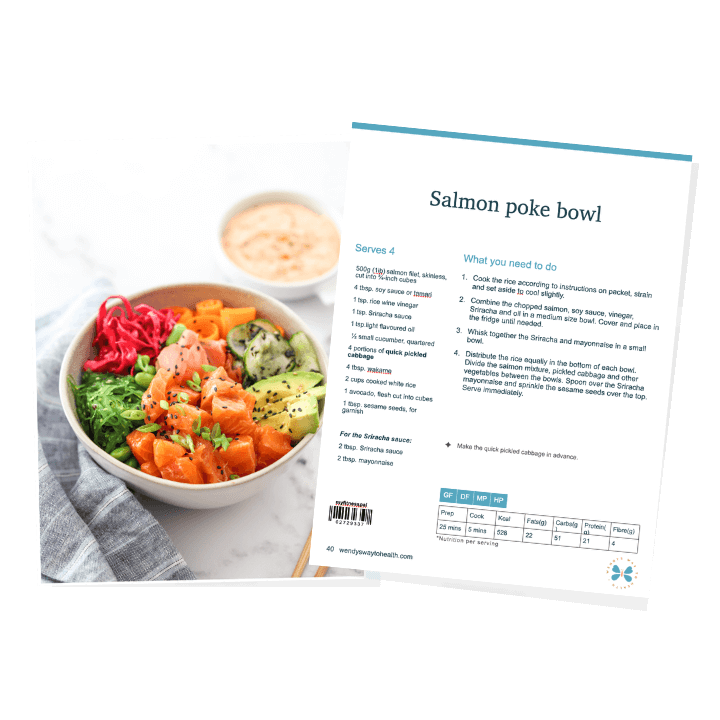
Detailed nutrition info on every recipe, plus MFP barcodes for easy tracking

